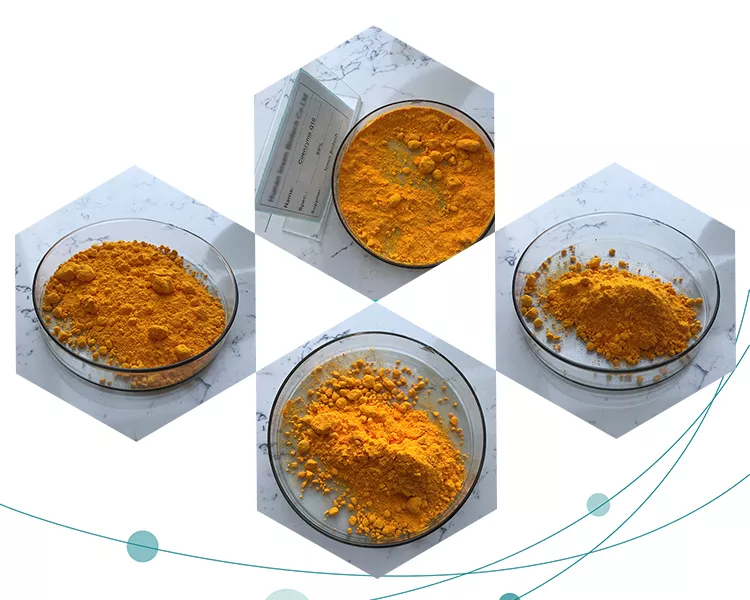Coenzyme Q10 (CoQ10), also known as ubiquinone, is a naturally occurring compound found in the cells of the human body. It plays a vital role in various biological processes and has been studied for its potential health benefits. While more research is needed to fully understand the extent of its effects, here are some of the profound benefits of Coenzyme Q10 that have been identified in scientific studies:

Energy Production: Coenzyme Q10 is a key component of the electron transport chain in mitochondria, where it helps generate adenosine triphosphate (ATP), the body’s primary source of energy. Supplementation with Coenzyme Q10 may improve energy levels, making it beneficial for individuals with conditions associated with fatigue, such as chronic fatigue syndrome.
Heart Health: Coenzyme Q10 is highly concentrated in the heart muscle, and it plays a critical role in maintaining cardiovascular health. Studies suggest that Coenzyme Q10 supplementation may help reduce blood pressure, improve endothelial function, and support overall heart function. It is often used as an adjunct therapy for heart conditions like congestive heart failure.
Antioxidant Properties: Coenzyme Q10 also acts as an antioxidant, helping to neutralize harmful free radicals in the body. Antioxidants protect cells and tissues from oxidative damage, which is associated with aging and the development of various chronic diseases.
Migraine Prevention: Some studies have shown that Coenzyme Q10 supplementation may reduce the frequency and severity of migraine headaches. Its exact mechanism in this regard is not fully understood, but it may involve its role in improving mitochondrial function and reducing inflammation.
Skin Health: Coenzyme Q10 has been included in various skincare products due to its potential benefits for the skin. It may help reduce the signs of aging by promoting collagen production and protecting skin cells from oxidative stress.
Neurological Health: Coenzyme Q10 has been investigated for its potential role in supporting brain health and cognitive function. It may help protect neurons from oxidative damage and improve energy production in brain cells. Some studies suggest it may be beneficial in conditions like Parkinson’s disease and Alzheimer’s disease, although more research is needed.
Exercise Performance: Coenzyme Q10 may enhance exercise endurance and recovery by improving mitochondrial function and reducing muscle damage associated with strenuous physical activity.
Diabetes Management: Some research suggests that Coenzyme Q10 supplementation may improve blood sugar control in individuals with diabetes. It may help reduce oxidative stress and support insulin sensitivity.
Fertility: Coenzyme Q10 has been studied for its potential role in improving male and female fertility. It may enhance sperm quality and improve egg quality, although more research is needed in this area.

It’s important to note that Coenzyme Q10 is generally considered safe when taken at recommended doses. However, it can interact with certain medications, so it’s essential to consult with a healthcare professional before starting any supplementation regimen, especially if you have underlying medical conditions or are taking prescription medications. The effectiveness of Coenzyme Q10 supplementation can vary from person to person, and its benefits may be more pronounced for individuals with specific health concerns or deficiencies.
